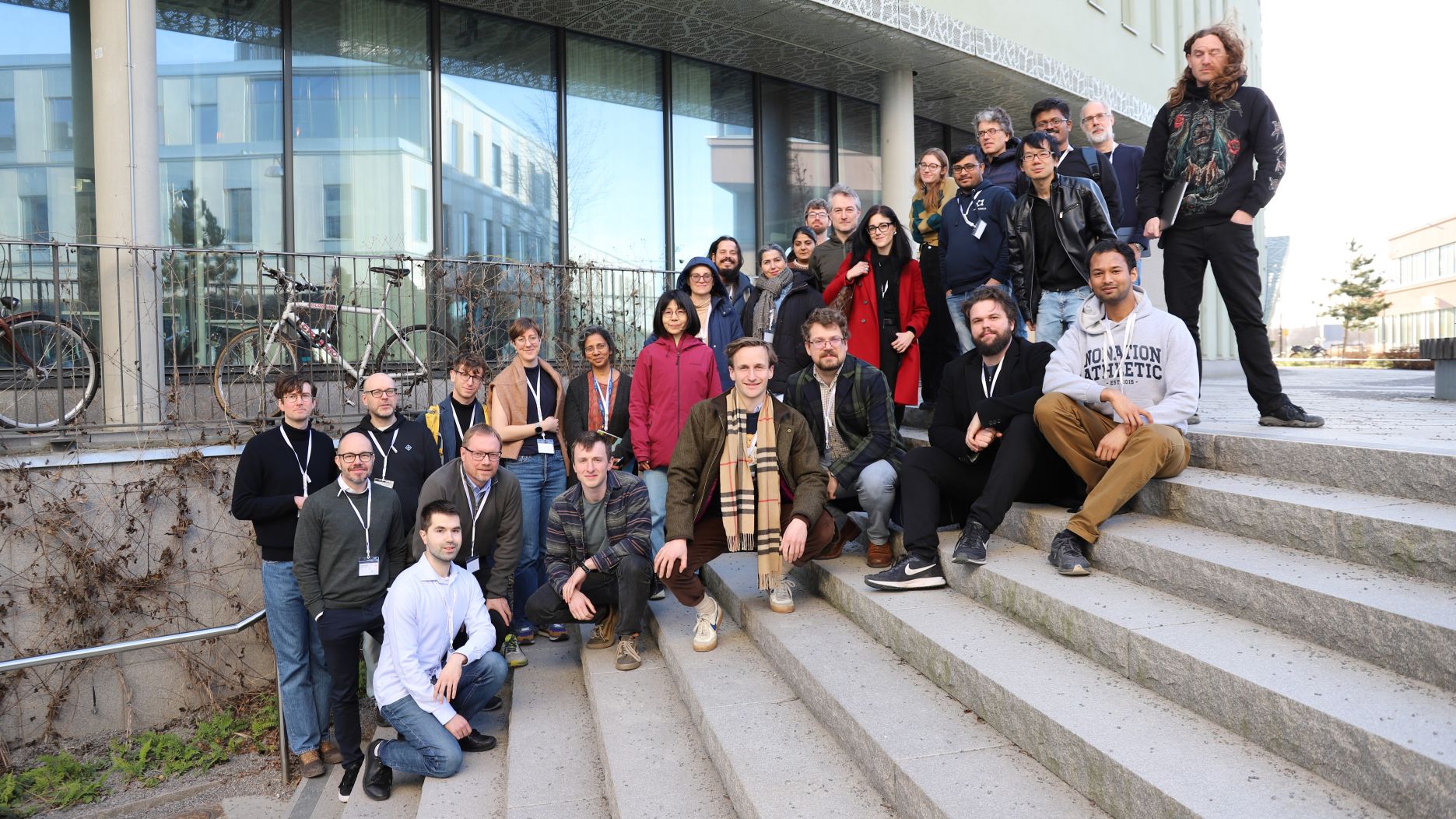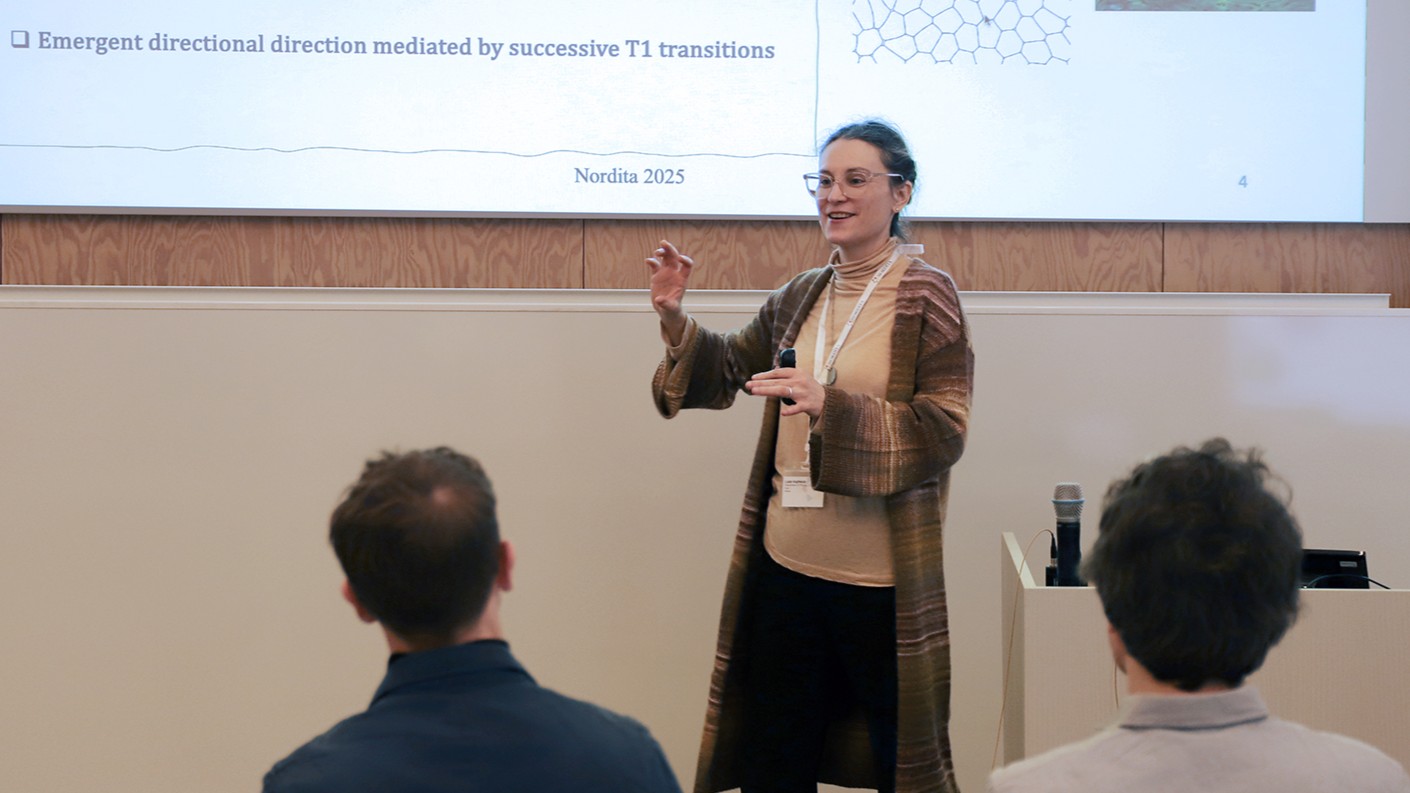
The participants of the 2025 Nordic Workshop on Statistical Physics gathered outside Nordita.
The Nordic Workshop on Statistical Physics, held every spring at Nordita in Stockholm, took place recently from March 5-7. This workshop is a key forum where scientists from the Nordic region working in Statistical Physics can regularly meet to discuss, collaborate, and exchange ideas. Covering topics ranging from fundamental aspects in the theory of non-equilibrium processes, to modern applications in biophysics, this long-standing tradition is now in its 14th edition (with one year skipped during the pandemic).
Ralf Eichhorn, Assistant Professor at Nordita and the main organizer behind the event, reflects on how the focus of the workshop has evolved over the years. “For some time, the topics mostly centered on fundamental non-equilibrium questions, but the focus seems to have shifted now more towards various applications and to using the theory to understand concrete biophysical systems like DNA, cells, and bacteria. Also, AI has emerged as an important trend in the last five years, particularly in the context of modeling complex systems and handling complex data.”
The workshop has become a well-established event with a core group of participants who attend regularly. In addition, the organizers strive to bring in new faculty members from Nordic institutions, along with senior postdocs as well as Nordic statistical physics students doing research.
Professor Luiza Angheluta-Bauer is an invited speaker from the University of Oslo. Her research focuses on non-equilibrium statistical physics, particularly in systems with persistent order and topological defects. This is her second time attending the workshop and her talk on “Tissue Dynamics due to Topological Changes and Fluidisation” clearly engages the audience.

Luiza Angheluta-Bauer presenting her talk on "Tissue Dynamics due to Topological Changes and Fluidisation".
“This Nordic workshop offers the amazing opportunity to bring together the Nordic community in statistical physics and soft matter physics,” she says. “I enjoyed all the wide range of topics covered in the talks, and I also had interesting discussions over lunch with a group of PhD students about their projects and how they tackle fundamental questions in driven classical or quantum systems”.
Over recent years, the workshop has expanded to include short contributed talks from junior participants, creating a platform for early-career scientists to present their work alongside the more established researchers. “A highlight is always the talk by our ‘special guest’, a speaker from outside the Nordic countries” explains Ralf. This year it was Alberto Imparato, who presented his work on the role of information as a resource for thermodynamic engines. Alberto also used to co-organize the workshop during his time as a Nordic professor in Aarhus”.
“The event has an important role in strengthening the connections within the Nordic community and facilitating the exchange of ideas, and initiating collaborations, which are so important for driving the field forward” comments Ralf. “I very much hope that the tradition of this annual workshop will continue for many years to come!” adds Luiza.